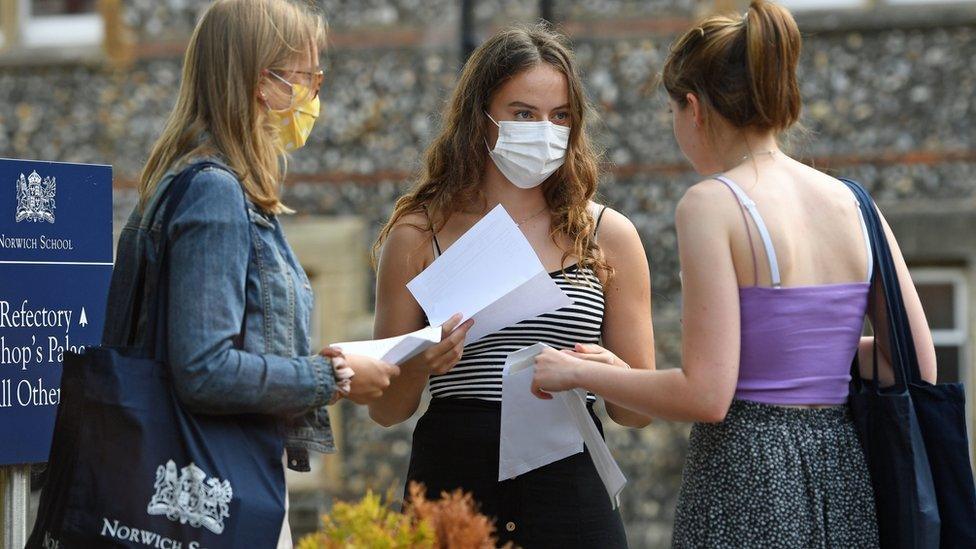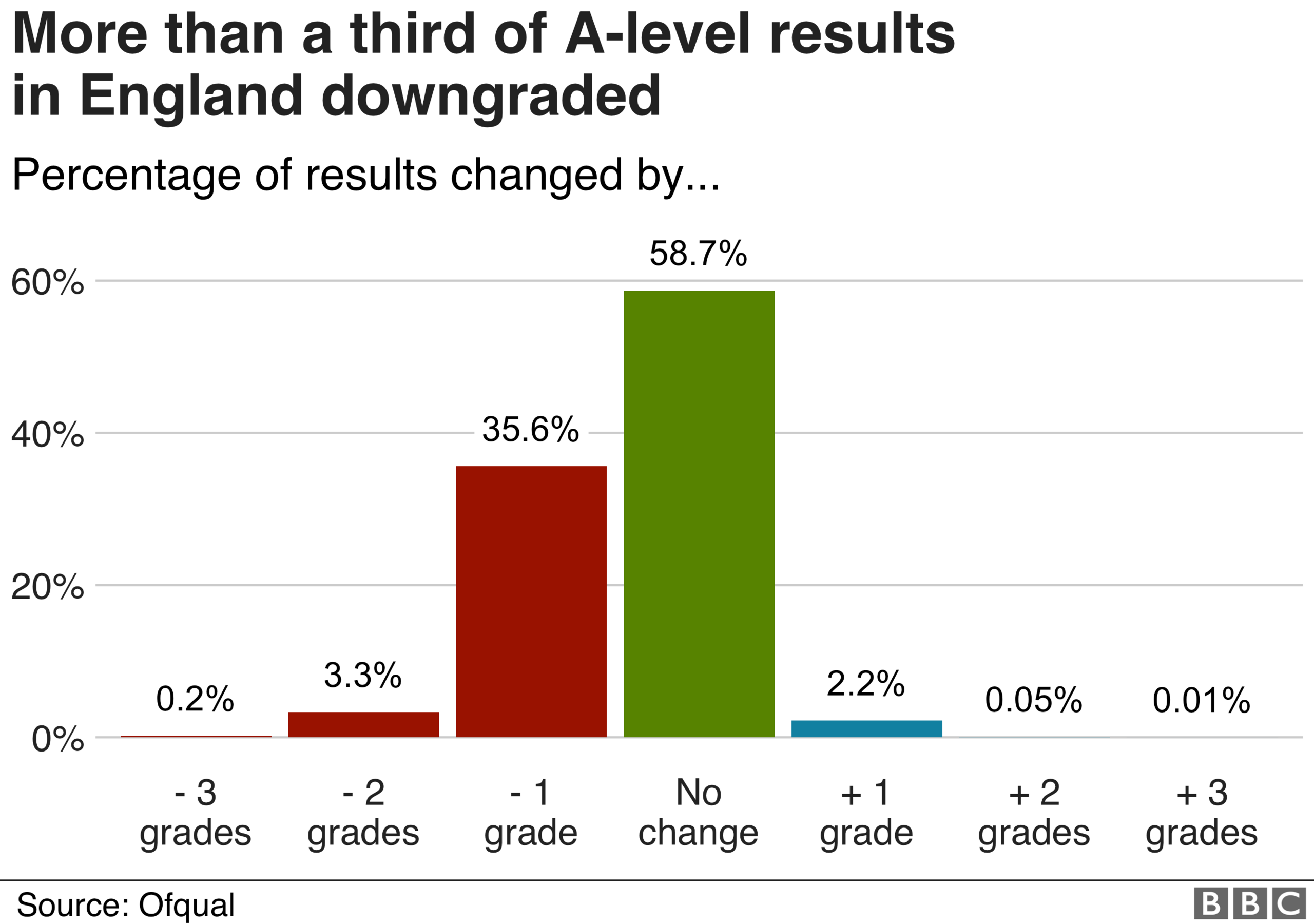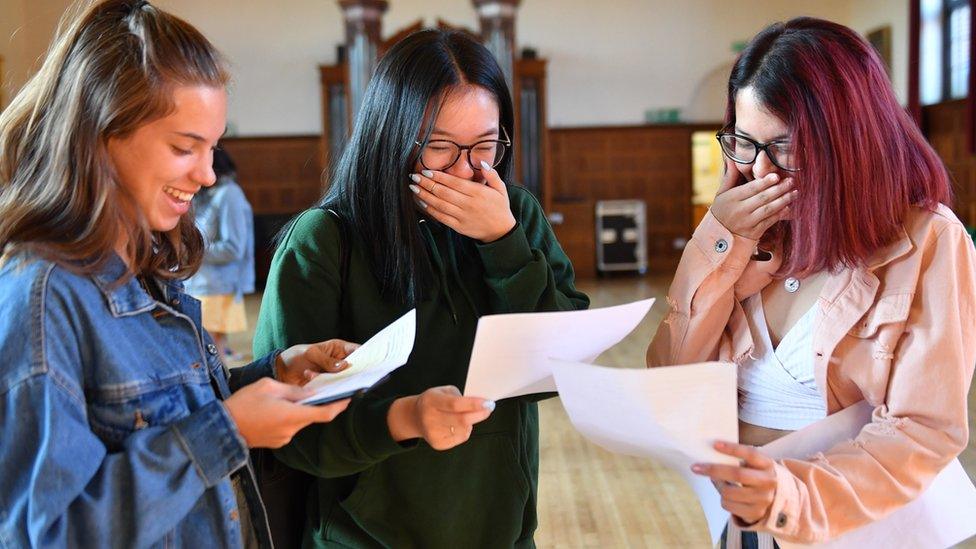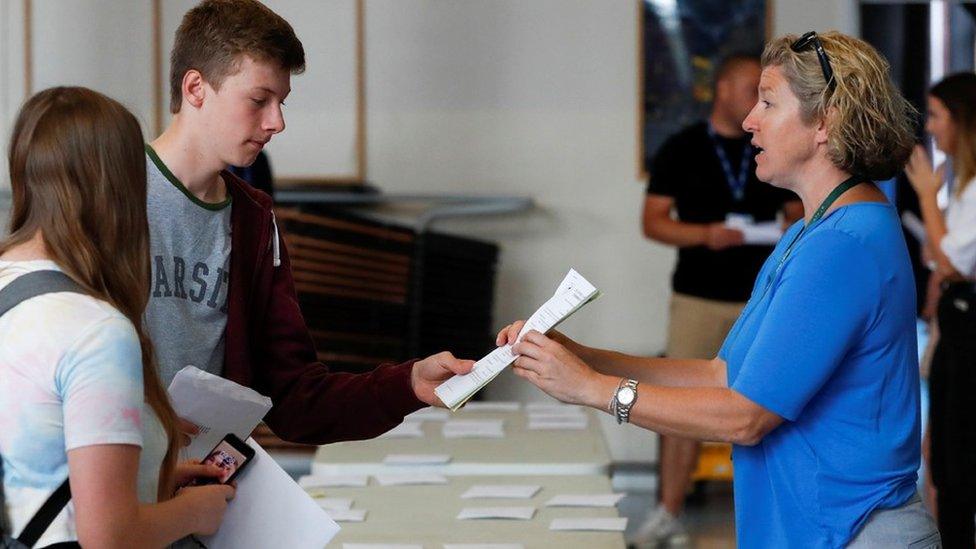A-levels: Worcester College, Oxford, 'will honour offers' despite results
- Published

Worcester College, Oxford said it had offered places to its "most diverse cohort ever"
An Oxford college has said it will honour all places it offered to UK students, irrespective of their A-level results.
There has been anger among schools, colleges and students since Thursday when 40% of awarded A-level grades were lower than teachers' predictions.
Prime Minister Boris Johnson said the results were a "robust set of grades".
Worcester College said it had given offers to its "most diverse cohort ever" before exams were cancelled.

There has been widespread concern about the fairness of the "calculated" results
In England, 36% of entries had a lower grade than teachers predicted and 3% were down two grades after exams were cancelled due to the coronavirus pandemic.
School and college leaders are calling for a review and have said all fees for appeals should be waived.
However, the overall results, across England, Northern Ireland and Wales, show record highs for A* and A grades.

A statement on the website of Worcester College, external, which has about 700 students, said: "Many members of our college community and beyond have expressed their concern for the potential impact of yesterday's A-level results on this year's incoming students.
"At Worcester we made offers in 2020 to our most diverse cohort ever, and in response to the uncertainties surrounding this year's assessment, we have confirmed the places of all our UK offer-holders, irrespective of their A-level results."
Staff at another Oxford college, which has not confirmed places, told the BBC they had been "flooded with emails" from concerned alumni that deserving students could lose out.
An open letter to the university, signed by more than 2,700 alumni, called for all colleges to make offers unconditional, with deferred entry where courses were full.
The letter, organised by two Balliol College graduates, said: "Brilliant pupils from economically disadvantaged schools have seen their dreams dashed - while others from wealthy backgrounds saw their predicted grades confirmed."
Organisers Hannah O'Rourke and Liam Whitton said the government's "discriminatory algorithm... operates on an assumption that individuals cannot transcend their backgrounds".

This year's A-level results are higher than even before, with record highs for A* and A grades
The prime minister has said pupils would be able to sit exams in the autumn if they felt they "could have done better" or felt there had been "an injustice".
He added: "But looking at the big picture, I think overall we've got a very robust set of grades, plus you've got the situation in which more pupils than ever before are getting their first choice course at university and more kids from disadvantaged backgrounds going to university."
- Published14 August 2020

- Published13 August 2020

- Published13 August 2020

- Published13 August 2020
